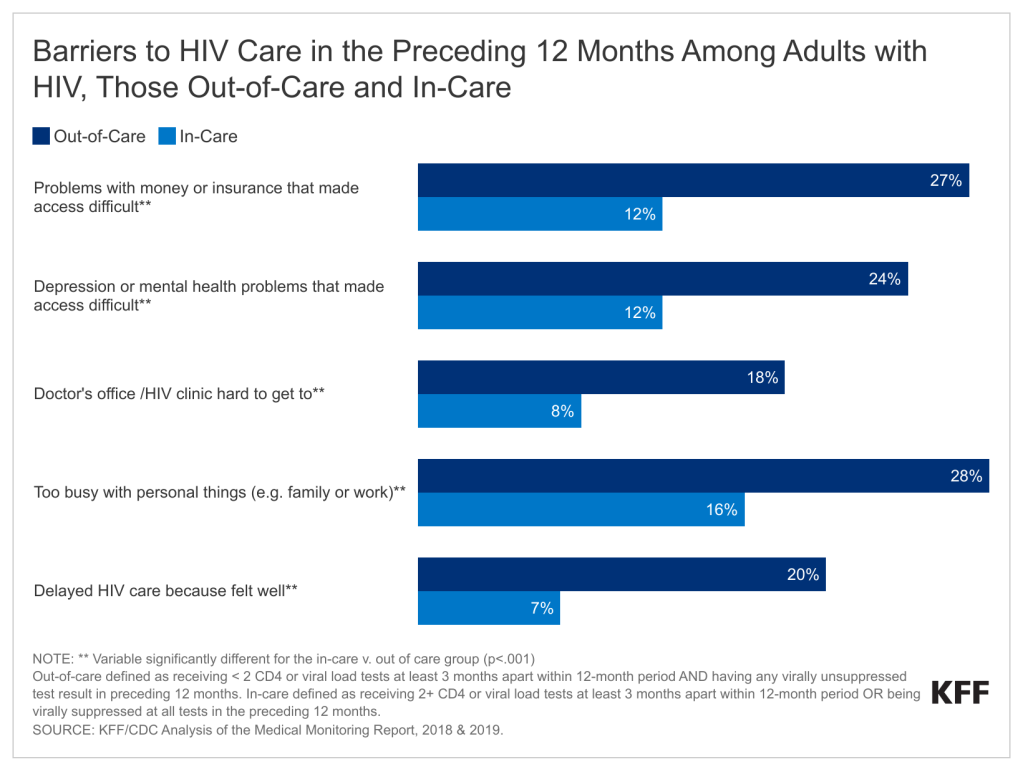A new KFF analysis finds that between 2018 and 2020, one-in-five (21%) adults diagnosed with HIV were out of care. Compared to adults who were receiving regular HIV care, adults who were out of care were more likely to be Black and to report challenges in their interactions with the health system, multiple and complex barriers to accessing health care services, and unmet needs for ancillary care.

Adults who were out of care were not virally suppressed and had not received recommended lab tests.
Additional findings include:
- Adults with HIV who were out of care were more likely to be young and to report poorer health status than those in care. They were also more likely to be uninsured and were less likely to have a regular provider or to receive support from the Ryan White HIV/AIDS Program, the nation’s HIV safety-net program that provides outpatient HIV care, treatment, and support services to people with HIV who are underinsured and uninsured.
- Adults who were out of care were more likely to report barriers to receiving care because of their finances, mental health, and difficulty getting to a doctor’s office, as well as more dissatisfaction with care than those in care. They were also more likely to report unmet needs for social and support services such as food and housing insecurity.
• A fifth of adults who were out of care were not on antiretrovirals (HIV medication) compared to virtually all of adults in care. Among adults on treatment, those who were out-of-care were more likely to report missing doses.
Identifying people with HIV who are out of care, and better understanding the barriers they face, are first steps towards engaging or reengaging them in care, addressing their unmet needs, and improving their health status. Doing so effectively would improve both individual health outcomes as well as public health, aligning with the goals in the national HIV/AIDS Strategy and the federal Ending the HIV initiative.
Read “What Do We Know About People with HIV Who Are Not Engaged in Regular HIV Care?” to learn more about people with HIV who are not engaged in regular HIV care and the barriers they face.
Additionally, learn more about KFF’s Greater Than HIV, a public information initiative focused on reaching those populations most affected by HIV in the United States with the latest on testing, prevention, and treatment. A current Greater than HIV effort provides free HIV testing and counseling as part of the largest National HIV Testing Day event in the nation on June 27th.